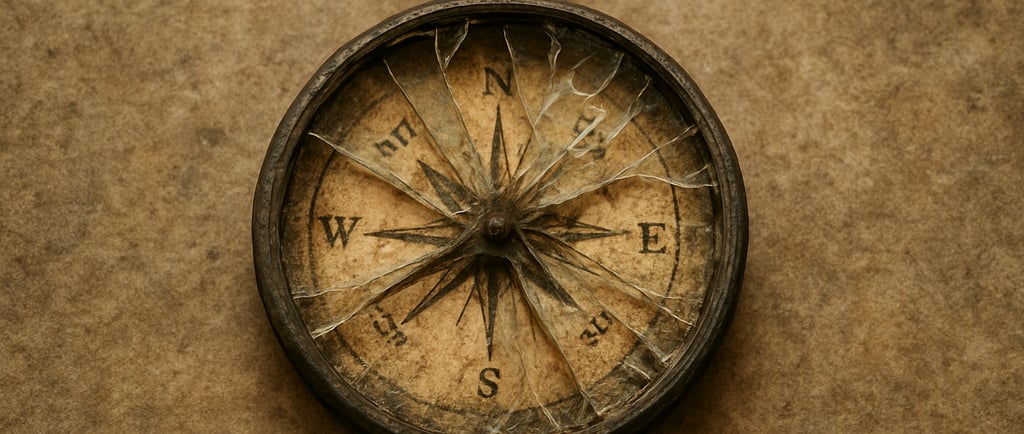Broken Compasses


By the time I get to this point of putting words together to address an issue, it’s usually because I’ve already been processing it internally for a while. Lately, I’ve been more quiet than usual because I’ve felt the need to do some self-care and anxiety reduction. As an Episcopal parish priest in the deep south, you always run the risk of offending some who don’t share your views when you speak out about things. When that happens, sometimes life can get very stressful very quickly. I deeply appreciate the encouragement I’ve received from those of you with whom I’ve been gifted to share conversations. My quiet time has given me an opportunity to gain some needed clarity and focus.
I believe many issues relating to our political reality under the current administration have long ago moved from the political sphere to the moral sphere. Politics is now so often the vehicle that both hides and encourages the moral decline of our society. Maybe that's why I think it’s incredibly ironic when people suggest that faith should have no voice in political issues. I don’t mean moral in terms of the broad spectrum of personal choices one makes according to their own compass. As long as you're not hurting people, do what you will. I mean moral in terms of an overarching agreement about what sort of treatment humans deserve.
I’ve long believed personal freedom ends where the common good begins. This is a basic tenet of our government and civic life. Alarmingly, it seems we have lost the ability to agree on where that line is in our society. Politics asside, this line of agreement has always been a struggle for us to identify in the US. Without a shared moral/ethical compass that balances personal freedom with the common good, wrong and right become arbitrary and subjective based on personal interpretation. In this sort of dystopian reality, basic human rights are suddenly up for reinterpretation. Moral foundations of compassion, empathy, and justice that have guided us for generations are being unceremoniously discarded. In their place we see revenge, isolation, elitism and persecution based on the whims of the powerful, all while much of our leadership normalizes and emboldens the worst inclinations of humanity. All of us, no matter our political affiliation, have suffered and will suffer as a result.
While I certainly believe there are brave individuals who are attempting to operate in the political sector with integrity and honor, I think our current moment continues to reveal the limitations of political infrastructure in dealing with what is ultimately a moral and communal question. What are the basics of right and wrong treatment? Where do we derive our sense of human rights? If you don’t know your answers to these questions, it's time to look into it. A good place to start might be the Universal Declaration of Human Rights adopted by the United Nations General Assembly in 1948 after the atrocities of WWII rewrote the book on what humans were capable of in our treatment of each other.
History doesn’t necessarily repeat itself, but it rhymes with deadly accuracy. We don’t have to reinvent the wheel to know what it means to do justly, love mercy, and walk humbly. May it not take another global human rights tragedy to remind us of who we are, what we all deserve, and what we owe each other by virtue of being human. Ultimately, no political infrastructure can provide that for us. We must decide for ourselves, and make it so through our interactions each day.
